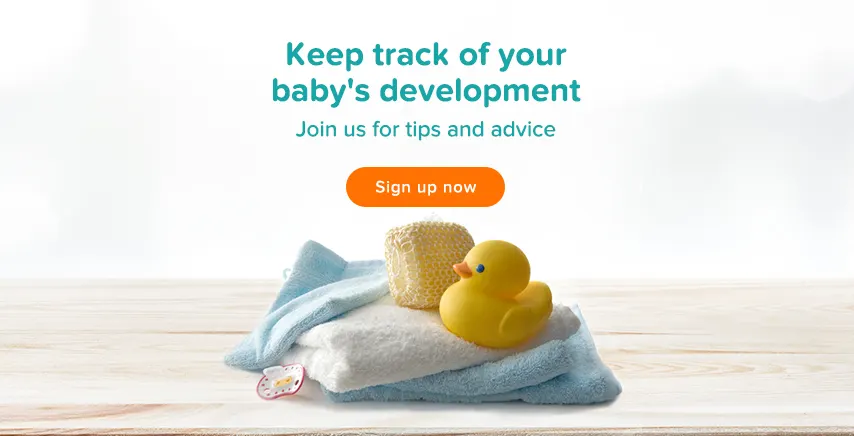Understanding your newborn baby's development
Welcome to parenthood! Although it all may seem overwhelming, your baby is less frail and helpless than you might think. They are capable in many ways and are going to help you become a good parent by giving you signals about what they need.
Your baby's major needs
At the moment, your baby's primary needs include feeding, sleeping and being soothed. They are learning that the world is a place to be trusted to meet their needs. Babies, like adults, come with individual temperaments. Some babies have more regular eating and sleeping patterns than others do at this age. It's best to adapt to your baby's schedule. He still needs to eat pretty regularly throughout the 24-hour day. Understandably, parents are exhausted and wondering whether they'll ever have a moment to themselves again. Rest assured, you will. For now, give in to the changes that your baby demands.
Spend your time taking care of your baby and yourself and getting to know each other
Newborns don't play yet, but they do enjoy exploring the world with their eyes, ears and bodies.
Take the time to talk to your baby when they are alert. They already know your voice from their time in the womb, so hearing both mom's and dad's voices are a comfort.
They can see best eight to 10 inches in front of him, or roughly the distance from your arms to your face. Look at them closely when you hold them, and they'll watch you as you cuddle, talk and sing.
It's best to put your baby on their back to sleep, to avoid over-wrapping them and over-heating their room, and to take all fluffy bedding out of the place where they sleep.
Remember to help yourself by keeping visitors who aren't helpers to a minimum, and don't worry about household tasks.
3 weeks
By three weeks, you may have developed some kind of rhythm or pattern of sleeping and eating, and you'll surprise yourself by starting to anticipate what your baby needs.
Your baby now:
Is alert more often, maybe even staying awake for about an hour. You'll notice that they are studying your face, watching you talk and calming down when they hear your voice.
Makes a little sound to show how excited they are when you talk to them. These little coos are the beginning of language. Be sure to stop and answer him with a bit of conversation.
Is extra fussy at the end of the day. This may not seem like progress, but it is! As your baby's nervous system matures, the world becomes more interesting, and your baby may need to unwind from all the excitement.
Has more control of their head. They won't seem quite as fragile as before, but they still need lots of support when you hold them.
Has more strength in their upper body. They can now be able to get their head up when you put them on their tummy but they still need to be sleeping on their back.
Watches their hand move in front of their face. Though they won't have much control of his hands, they will have pretty good control of their eyes and can study the objects around them.
2 Months
Your baby still keeps you guessing, but their sleeping and eating habits are becoming a bit more predictable. As your child gets over their bouts of cradle cap and other common newborn conditions, they'll look more and more like a model baby. They'll act the part with smiles, lots of 'conversation' and delighted wiggles when they see you.
You may also notice that your baby:
Is calmer with mom and dad than with strangers.
Studies you and everyone else with intense interest, especially before and after feeds.
Controls his head a little better, as long as you hold him still.
Likes being held up at your shoulder or sitting with his underarms supported.
Holds their head and pushes their arms up when their on their tummy. Make sure that they gets plenty of time on their tummy when they are awake to keep their head round and their shoulders strong.
Responds to you with smiling
Accidentally rolls over from tummy to back.
Has straightened out their posture and holds their hands open much of the time.
Catches and holds their hands, by accident and by feeling for them. Toys are about to become part of their life!
Fussing and crying tend to increase later in the day, which can be stressful. Ask your partner or someone you trust to help out. Carrying your baby in a baby carrier, even when they are not fussing, can reduce the amount of crying overall.
Now's the time to start watching your baby's eyes to see what their real colour will be. Your baby may also be noticeably chubbier by two months, and he may even have a double chin and thigh folds. This is the hallmark of a healthy, well-fed baby. It's time for his two-month check-up, so get ready to show him off at the GP's office.

